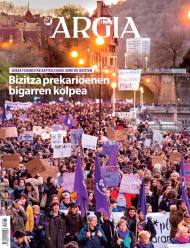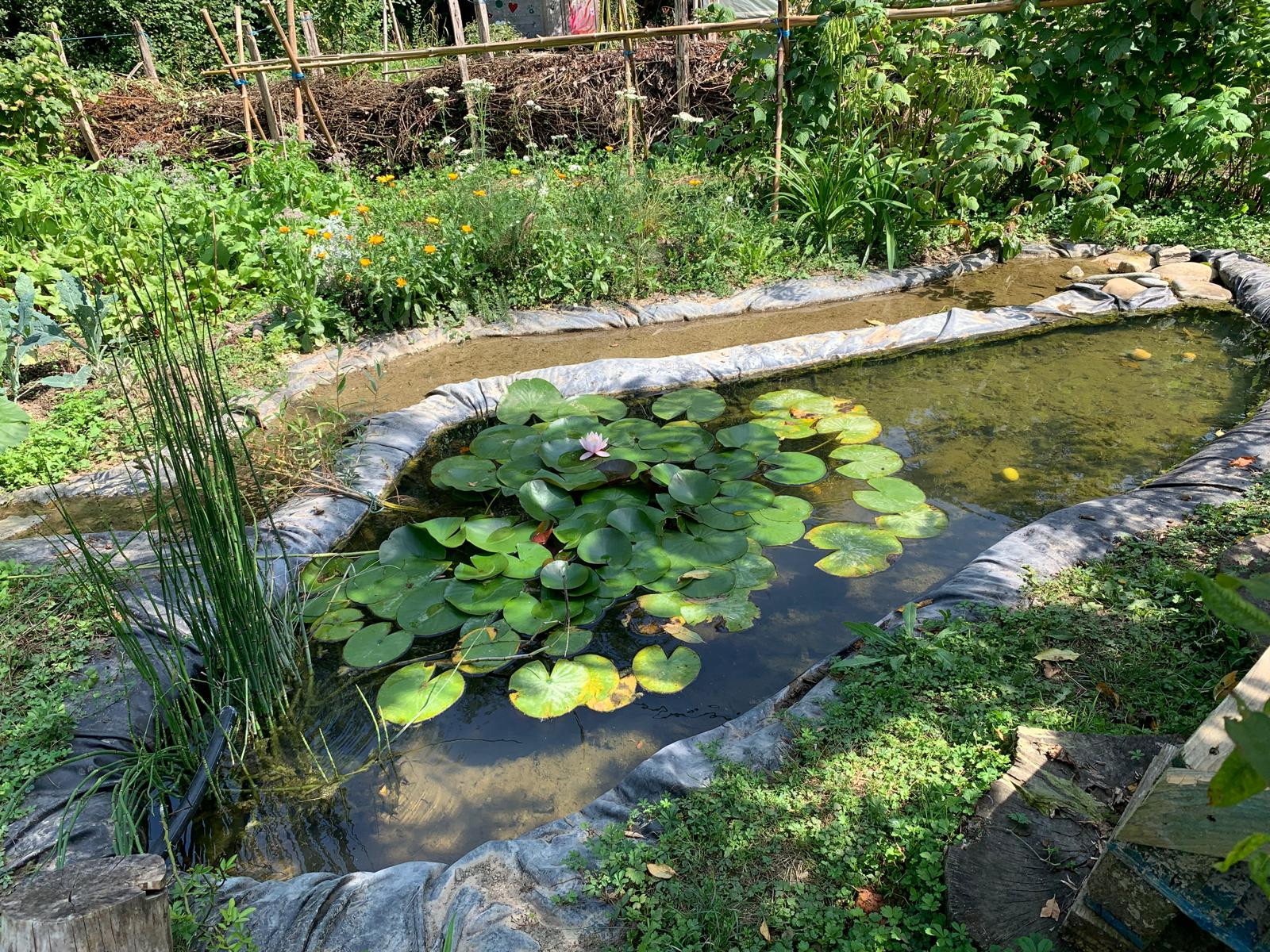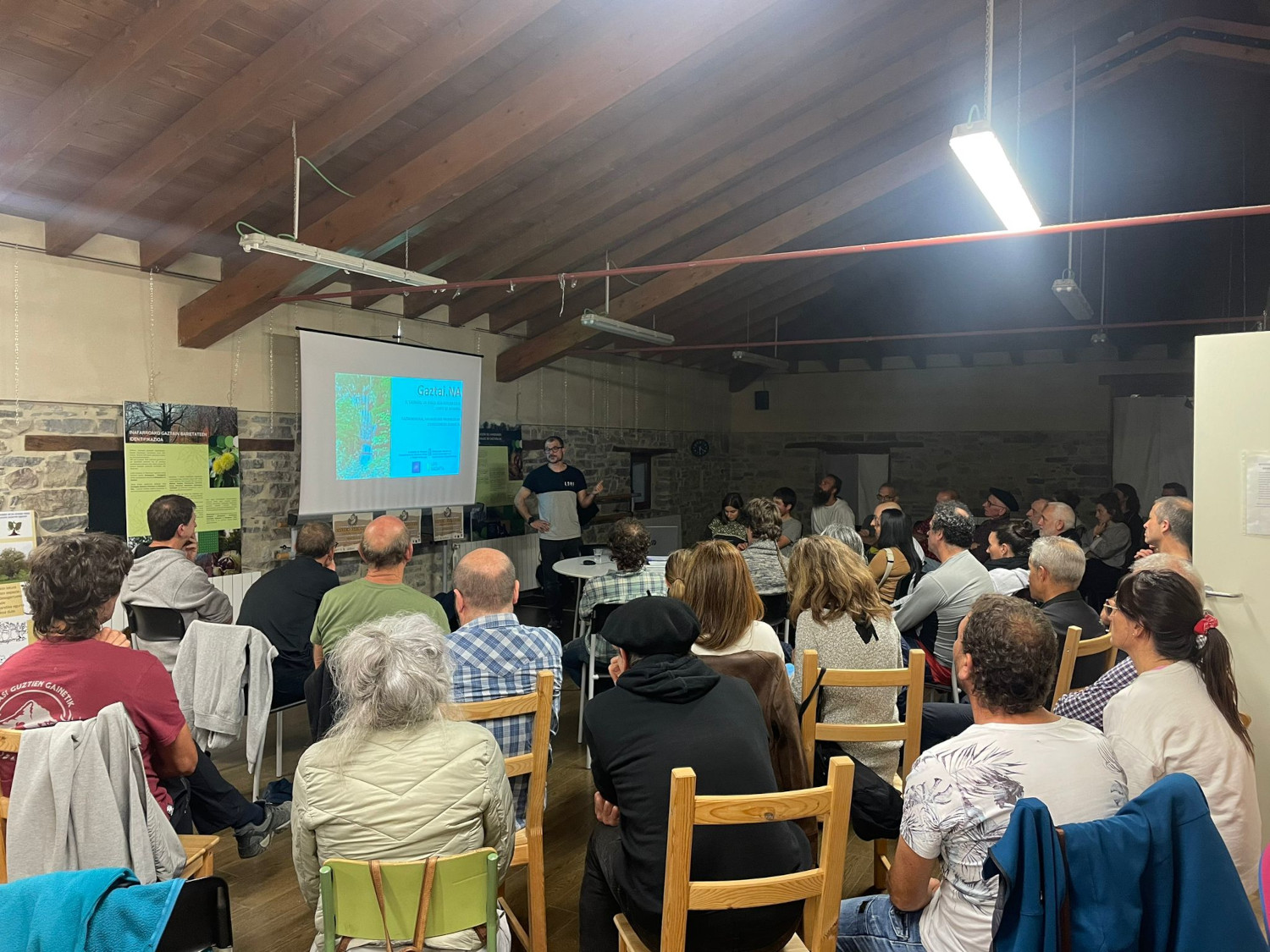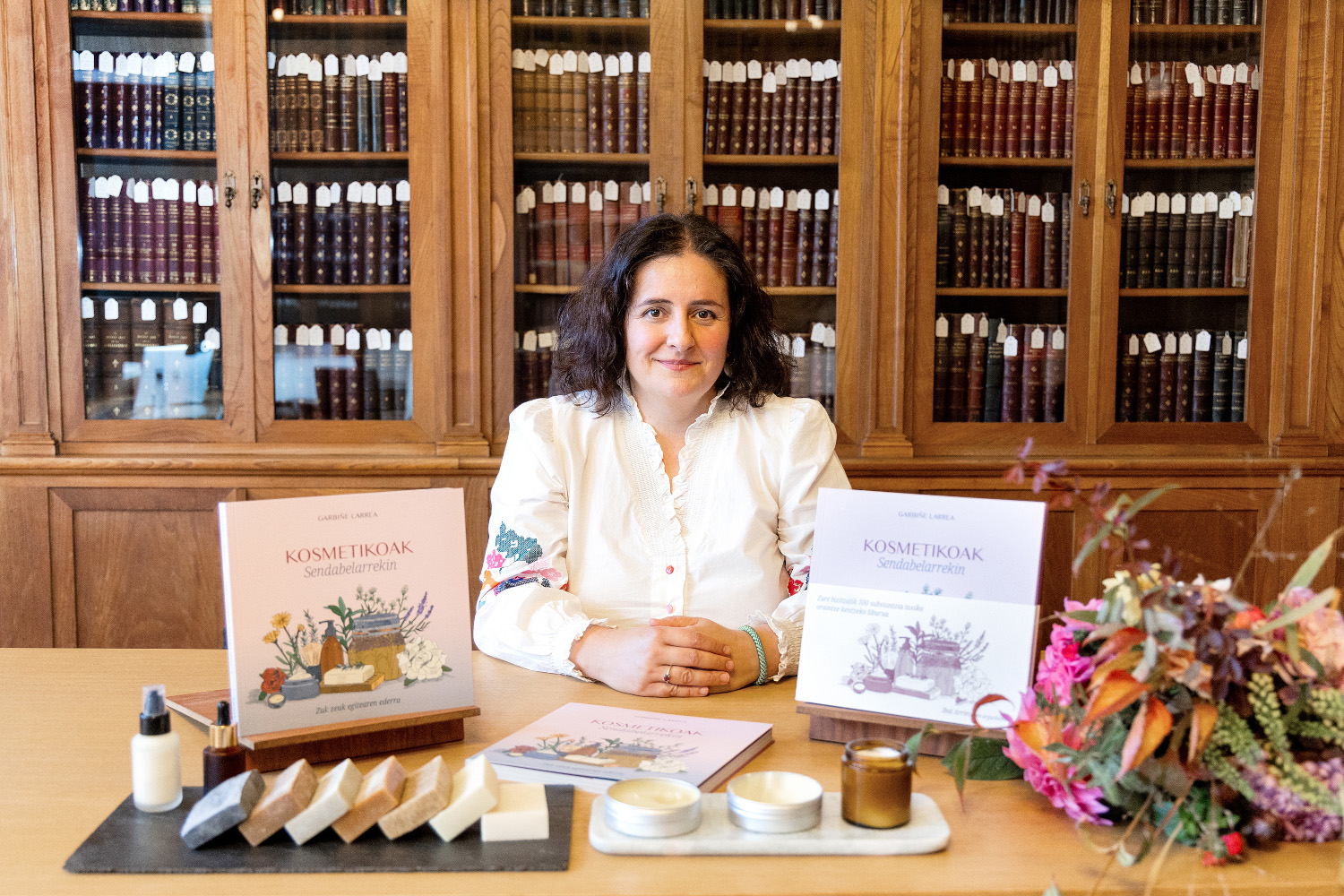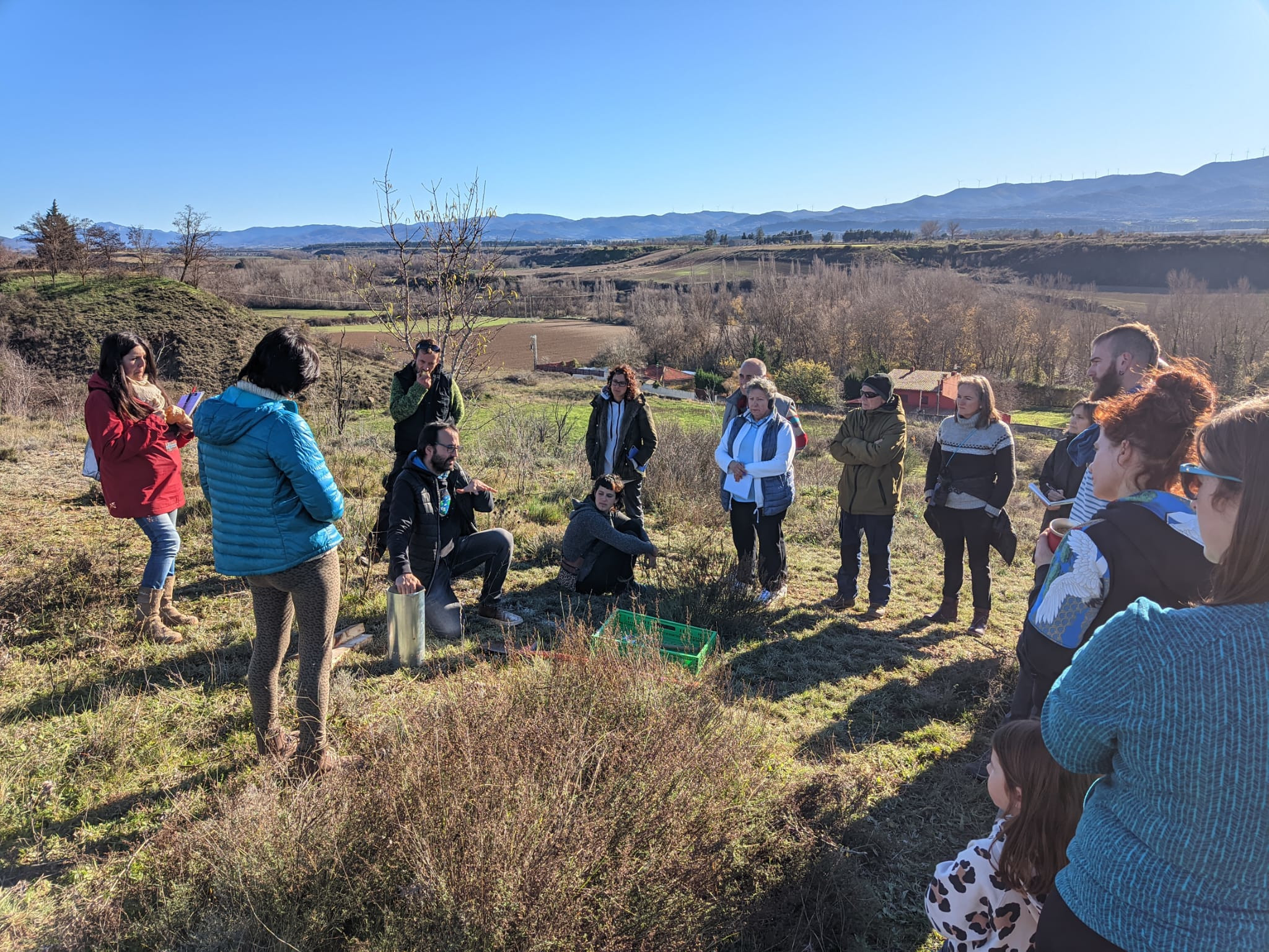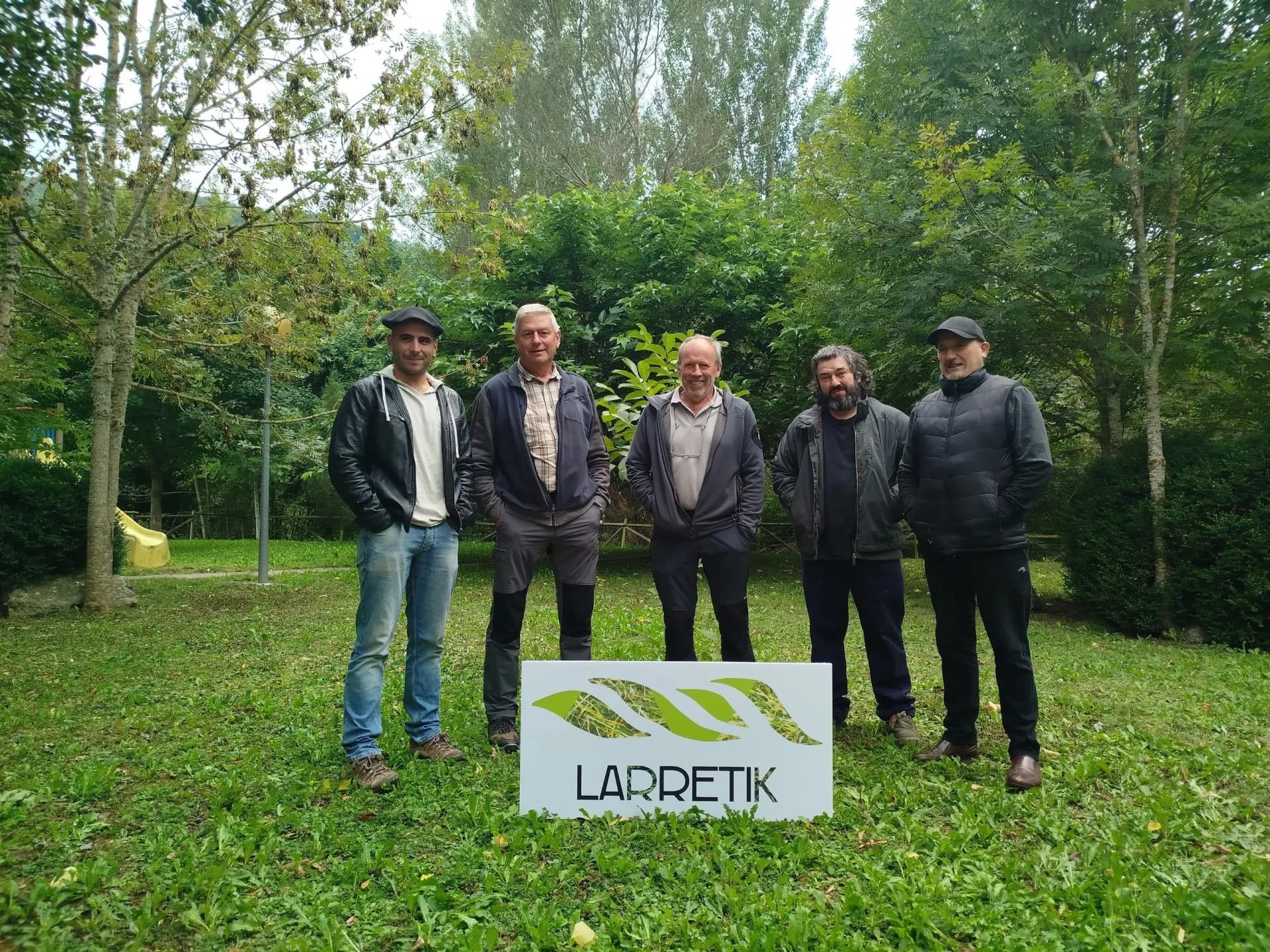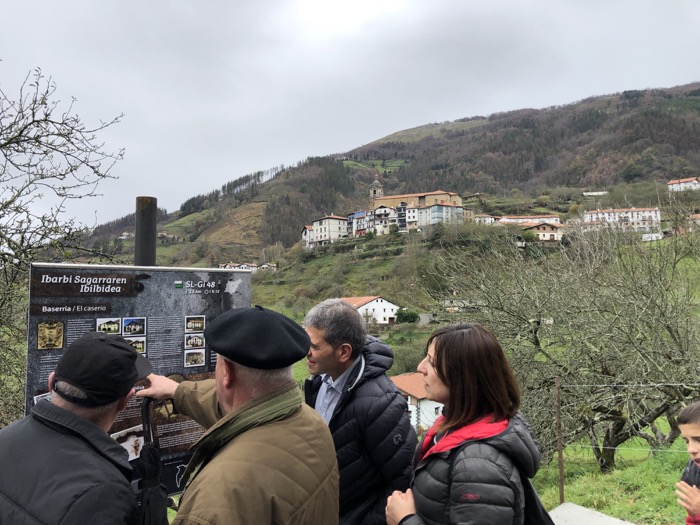
The Ibarbi Sagarra Company, grouped into several producers in Errezil, took its first steps in 2013. “The main task of the association is to investigate, develop and disseminate this type of apples,” said Joxerra Agirre, a member of the group. Seeing that in Euskal Herria there were few research works around the block, they started wanting to fill that gap. The Federation of Rural Development Associations of Gipuzkoa awarded the Landaola Prize in January to the work of the association during these years and in particular to the Ibarbi Apple Route. “It has given us strength to continue researching and pushing the local apple,” Agirre said.
Apple Guide
The drivers of the Ibarbi Apple Route sought the connection between the curtains and the apple. Thinking about how to do it, they found the route that people used to do: “Our job has been to mark the route that locals and visitors often made and put information panels along the way.” Based on the culture of the Errezil apple and the apple tree, the information panels have shown the history of the locality and several characters.
The route is part of Plaza Idi-Dema, located in the centre of the town, which has a length of 3.5 kilometres, and does not present major difficulties. “Along the route is most of Errezil’s errezil apple, as well as two special apple plantations with which we are currently engaged in research,” they say.
Drive to continue working
In addition to training and research, they also organise other types of activities. For example, the women at the Errezil Fair already organized Apple Day, now the two groups do it in collaboration. In addition, they organize visits to outside chamomiles. “This year we will surely go to Asturias to see how it is produced and sold there, to know the whole chain.” There, Agirre says that they are more advanced than ours in the field of research and marketing of the apple.
It is also worth mentioning the data collection carried out in 2015 in households: 130 manzanales and 11,445 blocks were counted, of which 56% were of ibarbi type.
.jpg)







